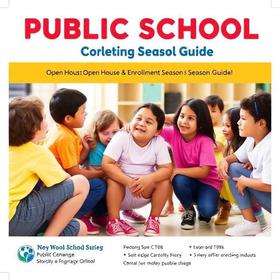For the 2025-26 school year, there are 4 public middle schools serving 2,194 students in New Albany, IN.
The top-ranked public middle schools in New Albany, IN are Community Montessori, Nathaniel Scribner Middle School and Hazelwood Middle School. Overall testing rank is based on a school's combined math and reading proficiency test score ranking.
New Albany, IN public middle schools have an average math proficiency score of 24% (versus the Indiana public middle school average of 32%), and reading proficiency score of 34% (versus the 40% statewide average). Middle schools in New Albany have an average ranking of 2/10, which is in the bottom 50% of Indiana public middle schools.
Minority enrollment is 35% of the student body (majority Black), which is less than the Indiana public middle school average of 37% (majority Black and Hispanic).
Best Public Middle Schools in New Albany, IN (2025-26)
School
(Math and Reading Proficiency)
(Math and Reading Proficiency)
Location
Quick Facts
Rank: #11.
Community Montessori
Charter School
(Math: 20% | Reading: 39%)
Rank:
Rank:
3/
Bottom 50%10
4102 St Joseph Rd
New Albany, IN 47150
(812) 948-1000
New Albany, IN 47150
(812) 948-1000
Gr: PK-12 | 486 students Student-teacher ratio: 14:1 Minority enrollment: 16%
Rank: #22.
Nathaniel Scribner Middle School
(Math: 25% | Reading: 34%)
Rank:
Rank:
3/
Bottom 50%10
910 Old Vincennes Rd
New Albany, IN 47150
(812) 949-4283
New Albany, IN 47150
(812) 949-4283
Gr: 5-8 | 898 students Student-teacher ratio: 15:1 Minority enrollment: 42%
Rank: #33.
Hazelwood Middle School
(Math: 25% | Reading: 32%)
Rank:
Rank:
3/
Bottom 50%10
1021 Hazelwood Ave
New Albany, IN 47150
(812) 949-4280
New Albany, IN 47150
(812) 949-4280
Gr: 5-8 | 810 students Student-teacher ratio: 12:1 Minority enrollment: 39%
Rank: n/an/a
Prosser Career Education Center
Vocational School
4202 Charlestown Rd
New Albany, IN 47150
(812) 949-4266
New Albany, IN 47150
(812) 949-4266
Gr: 6-12
New Albany, Indiana Public Schools (Closed)
School
Location
Quick Facts
Pearl St
New Albany, IN 47150
(812) 949-429
New Albany, IN 47150
(812) 949-429
Gr: PK | 240 students Student-teacher ratio: 10:1 Minority enrollment: 40%
1111 Pearl St
New Albany, IN 47150
(812) 949-4295
New Albany, IN 47150
(812) 949-4295
Gr: PK-5 | 290 students Student-teacher ratio: 13:1 Minority enrollment: 48%
2801 Grant Line Rd
New Albany, IN 47150
(812) 981-7466
New Albany, IN 47150
(812) 981-7466
Gr: 6-12 | 160 students Student-teacher ratio: 13:1 Minority enrollment: 25%
Silvercrest Chldn's Dev Center (Closed 2008)
Special Education School
7po Box 99
New Albany, IN 47151
(812) 945-528
New Albany, IN 47151
(812) 945-528
Gr: K-12 | 60 students
Frequently Asked Questions
What are the top-ranked public middle schools in New Albany, IN?
The top-ranked public middle schools in New Albany, IN include Community Montessori, Nathaniel Scribner Middle School and Hazelwood Middle School.
How many public middle schools are located in New Albany?
4 public middle schools are located in New Albany.
What is the racial composition of students in New Albany?
New Albany public middle schools minority enrollment is 35% of the student body (majority Black), which is less than the Indiana public middle schools average of 37% (majority Black and Hispanic).
Which public middle schools in New Albany are often viewed compared to one another?
Popular comparisons of public middle schools in New Albany include: Hazelwood Middle School vs. Nathaniel Scribner Middle School, Nathaniel Scribner Middle School vs. Hazelwood Middle School
Recent Articles

Public School Open House & Enrollment Season Guide
A parent-focused guide to the public school open house and enrollment season, with expert questions, timelines, and decision tips.

School Supply Budget 2026: Fees, Books, Tech Costs
School Supply Budget 2026 guide for parents, covering fees, textbooks, technology, and hidden extras to plan ahead.

Education Funding in America (2025 Update)
Comprehensive 2025 update on public school funding in America, new federal and state policies, per-pupil spending, and equity challenges.
